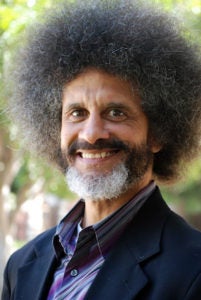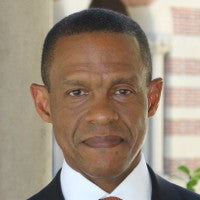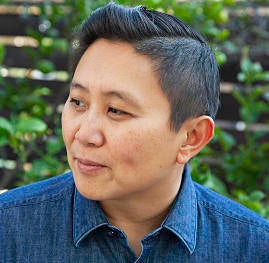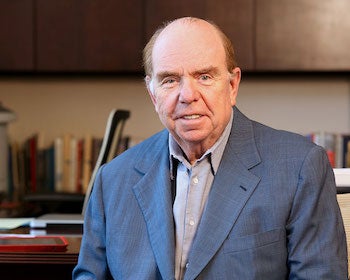Contact: Jenesse Miller 213-810-8554 or jenessem@usc.edu
USC experts offer their expertise on how the protests will shape this election year, while decoding the president’s racially-charged language about the suburbs.
Can the candidates capitalize on this moment?
 “Black Lives Matter protests shifted public opinion on systemic racism and sparked calls to defund police departments, but it’s still unclear whether the racial unrest roiling the streets of America will help or hurt the presidential candidates for both parties.
“Black Lives Matter protests shifted public opinion on systemic racism and sparked calls to defund police departments, but it’s still unclear whether the racial unrest roiling the streets of America will help or hurt the presidential candidates for both parties.
“Whether the candidates at the top of the ticket for Democrats, both of whom been staunch supporters of law enforcement, can capitalize on the movement’s energy may depend on whether they can convince voters that they’ve seen the light and now recognize the need for real criminal justice reform.
“Whether those at the top of the Republican ticket can capitalize on this political moment depends on whether they can frame the protests as proof of the need for ‘law and order’ approaches to social problems and can galvanize their base through appeals to ethno-nationalism and white identity politics.”
Jody David Armour is the Roy P. Crocker Professor of Law at the USC Gould School of Law. He studies the intersection of race and legal decision making and is the author of the recently published book N*gga Theory: Race, Language, Unequal Justice, and the Law.
Contact: jarmour@law.usc.edu
Who is responding to the president’s rhetoric?
 “Phrasing like, ‘America first,’ ‘thugs,’ ‘suburban housewives’ and most directly the ‘fine people on both sides’ remark are thinly veiled messages to a largely white demographic.
“Phrasing like, ‘America first,’ ‘thugs,’ ‘suburban housewives’ and most directly the ‘fine people on both sides’ remark are thinly veiled messages to a largely white demographic.
“The combination of political speech and militias that encourages extremist views, along with fear of progressive change, have all contributed to an us-versus-them narrative that today has centered around the rule of law, and in particular, police reform and public condemnation of systemic racism and abuse of authority.”
Erroll Southers is the director of the Safe Communities Institute‘s Homegrown Violent Extremism Studies program and a professor of the practice of National and Homeland Security at the USC Price School of Public Policy. He is a former FBI special agent and was deputy director of homeland security under California governor Arnold Schwarzenegger. Southers recently wrote about the need for a national registry of police misconduct.
Contact: southers@price.usc.edu
Is the Trump Administration reversing on housing policy?
 “As recently as last year, the Trump administration was fighting on behalf of affordable housing in the suburbs. Housing and Urban Development Secretary Ben Carson railed against the ‘not in my backyard’ mentality that stands in the way of high-density, multi-family affordable housing. The executive order Trump signed last year cited with approval an Obama rule that compelled local governments to take affirmative steps towards affordable housing.
“As recently as last year, the Trump administration was fighting on behalf of affordable housing in the suburbs. Housing and Urban Development Secretary Ben Carson railed against the ‘not in my backyard’ mentality that stands in the way of high-density, multi-family affordable housing. The executive order Trump signed last year cited with approval an Obama rule that compelled local governments to take affirmative steps towards affordable housing.
“Now, Trump has suddenly reversed course in the run-up to the election to pander to white, single-family homeowners in the suburbs. This isn’t dog-whistle politics, coded in order to avoid being labeled racist. No, it’s an open call of ‘Here, bigot bigot’ aimed at mobilizing white racial fears of mixed-income and multi-racial neighborhoods.”
Daria Roithmayr is the Richard L. and Antoinette S. Kirtland Professor of Law at the USC Gould School of Law. She teaches and writes about persistent structural racism in labor, housing, political participation, wealth and education and is the author of Reproducing Racism: How Everyday Choices Lock in White Advantage.
Contact: droithmayr@law.usc.edu
Who actually lives in the suburbs?
 “Trump is using outdated and segregated ‘suburban’/’urban’ distinctions to capitalize on fear and racial panic to motivate voters at the ballot box.
“Trump is using outdated and segregated ‘suburban’/’urban’ distinctions to capitalize on fear and racial panic to motivate voters at the ballot box.
“His inflammatory rhetoric about suburban degradation and ‘law and order’ plays upon a well-known historical narrative of ‘white flight’ that reinforces a segregated imaginary scenario placing the purportedly white suburbs, in opposition to Black and brown cities.
“In doing so, he ignores the demographic developments and transformations in U.S. cities and suburbs over the last 30-plus years, failing to account for how the suburbs, in some instances, have actually become important, thriving enclaves for immigrants and people of color. This is especially true since ‘urban revitalization’ and gentrification began to displace and relocate communities of color into the suburbs, most notably in the American West, in the 1990s.”
Karen Tongson is the chair of gender and sexuality studies and professor of English, American studies and ethnicity at the USC Dornsife College of Letters, Arts and Sciences. Her research interests include queer and gender studies, minority discourse, popular culture and suburban studies. She is the author of Relocations: Queer Suburban Imaginaries and Why Karen Carpenter Matters.
Contact: tongson@usc.edu
What do the polls tell us about white suburban voters?
 “In 2016, suburban voters gave Trump the presidency. In 2018, they were the lever that gave Democrats back the House of Representatives. According to the Dornsife Daybreak Poll, the support of white people in the suburbs for Trump and Biden is now tied, and I think that’s why Republicans are talking about how the suburbs are going to be invaded and destroyed.
“In 2016, suburban voters gave Trump the presidency. In 2018, they were the lever that gave Democrats back the House of Representatives. According to the Dornsife Daybreak Poll, the support of white people in the suburbs for Trump and Biden is now tied, and I think that’s why Republicans are talking about how the suburbs are going to be invaded and destroyed.
“I think that’s very significant but add to that that, for example, Biden is gaining among rural voters over Hillary Clinton’s performance with that group. In every single geographic area, Biden has gained support.
“Obviously it’s still early and we don’t know the full impact and future course of the ongoing racial strife and the two nominees’ reactions to it, but one thing is clear: Trump starts the fall campaign in a weaker position than any incumbent since George H. W. Bush.”
Robert Shrum is the director of the Center for the Political Future at the USC Dornsife College of Letters, Arts and Sciences and a former political strategist and consultant.
Contact: shrum@usc.edu or (202) 338-1812
Photo via Pixabay



